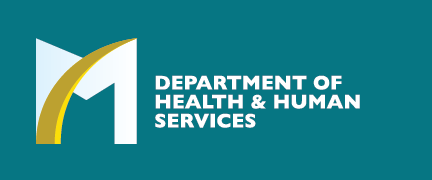SUD
Recovery Centers
Assessment. Treatment. Remission. Recovery.
Cultural Competency
At SUD RECOVERY CENTERS, we are committed to providing all services with sensitivity to the culture and values of the clients we service, and to offer, as appropriate, treatment for groups organized with special needs in mind (e.g., gender, sexual orientation, older adults, Spanish language, co-occurring disorders, and developmental disabilities). We guarantee equal access to treatment for all persons in need, regardless of race, ethnicity, gender, disability, age (18 years or over), or sexual orientation.
Note: All content herein is either original, used with the copyright holder’s permission, purchased, or sourced from government or other “open source” publications which are not subject to copyright restrictions. No copyright is claimed for either the images or anything else that was purchased or open source or used with permission. Otherwise © Copyright, Genesis Behavioral Services, Inc. -2021. All rights reserved.

Dear Visitor,
Thank you for visiting our website. SUD RECOVERY CENTERS is a network of residential treatment facilities serving persons with a primary diagnosis of Substance Use Disorders (SUDs). Many of the clients that we serve are also diagnosed with mental disorders. Additionally, persons with SUDs also known to often experience comorbid chronic physical health conditions, including chronic pain, cancer, and heart disease. Therefore, at SUD RECOVERY CENTERS we employ the “medical model” to treat our clients. Each of our centers is licensed by the Wisconsin Division of Quality Assurance (DQA) under DHS 83, and certified under DHS 75.11 and DHS 75.14.
Our treatment philosophy is based on the following key principles:
-
- We subscribe to the “medical model”, which views addiction as a complex but treatable disease that affects brain function and behavior.
- No single treatment is appropriate for everyone. Treatment varies depending on the type of drug and the characteristics of the clients.
- Effective treatment attends to multiple needs of the individual, not just his or her drug abuse. To be effective, treatment must address the individual’s drug abuse and any associated medical, psychological, social, vocational, housing, and legal problems. It is also important that treatment be appropriate to the individual’s age, gender, ethnicity, and culture.
- Addiction is a chronic brain disease from which recovery is possible.
- Recovery is a process of change through which individuals improve their health and wellness, live a self-directed life, and strive to reach their full potential. Even individuals with severe and chronic SUDs can, with help, overcome their disorder and regain health and social function. This is called remission. When those positive changes and values become part of a voluntarily adopted lifestyle, that is called “being in recovery.”
We are affiliated with Matt Talbot Recovery Services, Inc., Horizon Healthcare, Inc. and Genesis Behavioral Services, Inc., which collectively provide comprehensive behavioral healthcare services in outpatient clinics, corrections facilities, residential facilities, a detoxification center, and in the cloud through telehealth.
At SUD RECOVERY CENTERS we are committed to a mission of providing quality services to persons struggling with substance use and co-occurring mental disorders. We aim to empower each of our clients to achieve recovery and rehabilitation in mind, in body and in spirit. In addition to stopping drug abuse, our ultimate goal in treatment is to return people to productive functioning in the family, workplace, and community. Our promise is that we will provide to each of our clients skilled and compassionate care that is individualized to their unique needs.
One purpose of this website is to comprehensively inform and educate the public, our clients, their families, their case managers and advocates, our government agency partners, our healthcare partners, payers and referral sources about SUDs – including the latest research and thinking pertaining to the nature of SUDs and how to manage and treat SUDs. As a healthcare provider, we aim to approach the treatment of SUDs based on medical science, on evidence and on trauma-informed care rather than on popular approaches – often majorly relying on psychotherapy (“talk therapy”) – that more often than not are ultimately not optimally effective in the client’s remission or recovery.
Patricia M. Faulhaber, RN, MSN


Executive Vice President/COO

The programs and services provided by our agency, as described herein, are subsidized by the Milwaukee Country Department of Health and Human Services (DHHS). In addition to significant financial support, DHHS also provide our agency with advice and guidance pertaining to program development, quality assurance, compliance, and related matters
